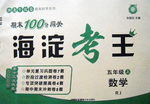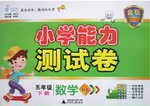题目内容
One thing we love about is that it’s easy to make and it only needs a few simple ingredients(原料). Here are four of our favourite and simple homemade soups. Enjoy!
1. Chicken Soup
Chicken soup can help to fight a cold. You can prepare your soup with a whole chicken or just thin pieces of chicken. Do either of themalthough a whole chicken is likely to make your soup much tastier. The main ingredients are: chicken, water, onions, carrots, celery(芹菜), salt, pepper and noodles.
2. White Bean Soup
There are many types of beans to choose from. It’s simply a matter of personal taste. Dried beans are more traditional and cost less. However, canned beans also work. The other main ingredients are: onions, tomatoes and carrots. Add salt and pepper to taste.
3. French Onion soup
When you get French onion soup in a restaurant, it might look a bit difficult to make. The hardest part is cutting up all those onions—get ready for a good cry! The main ingredients are: six sweet onions, butter, water and salt.
4. Garden Vegetable Soup
In summer, you may find yourself with a lot of vegetables that need using up. Throw in potatoes, rice or even some meat with the vegetables. The best thing about this soup is that you can put in whatever you want. The main ingredients are: onions, carrots, celery, tomatoes and potatoes.
1.How can you make the chicken soup more delicious?
A. By adding carrots.
B. By using chicken pieces.
C. By adding onions.
D. By using a whole chicken.
2.What is the most difficult part when making French onion soup?
A. Getting good onions.
B. Cutting up the onions.
C. Making the soup look good
D. Buying the ingredients.
3.What might be the best soup in summer ?
A. Chicken soup. B. White bean soup.
C. French onion soup. D. Garden vegetable soup.
4.Which of the following is TRUE?
A. Chicken soup is good if you catch a cold.
B. Canned beans are cheaper than dried beans.
C. It's difficult to make French onion soup.
D. You cannot put meat in garden vegetable soup.
5.Which ingredient is needed in all the soups?
A. Tomatoes. B. Onions. C. Butter. D. Celery.
1.D
2.B
3.D
4.A
5.B
【解析】
试题分析:本文写了几种汤的做法。
1.
2.
3.
4.
5.
考点:考查生活知识类短文阅读

 期末100分闯关海淀考王系列答案
期末100分闯关海淀考王系列答案 小学能力测试卷系列答案
小学能力测试卷系列答案